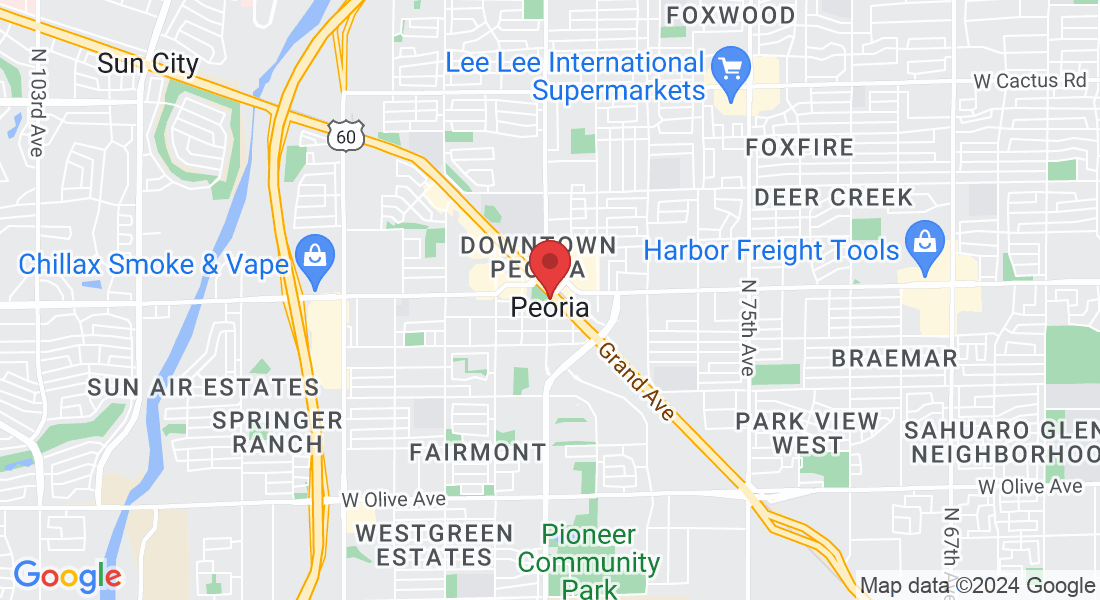Our Blog

DIY SEO - Yes You can do it yourself; Here's How!
Top Ten Ways to DIY Your SEO and Win!
When it comes to Search Engine Optimization, it can be confusing, intimidating and may even seem out of reach. That is why we here at bizMelio have put together a simplified way for you to create a long-term strategy that is easy to understand the implement.
So here goes; the 10 Strategies to DIY Your SEO that will help your business rank higher and get better search rankings overall.
1. Understand Your Audience and Keywords
- Start by researching keywords that are relevant to your business and audience. Use tools like Google Keyword Planner (https://ads.google.com/home/tools/keyword-planner/) to find keywords with a good balance of search volume and competition.
2. Optimize Your Website's Structure
- Ensure your website is structured in a way that search engines understand. This includes using a clear hierarchy, proper use of header tags (H1, H2, etc.), and a sitemap. WordPress offers plugins like Yoast SEO (https://yoast.com/wordpress/plugins/seo/) that can help with this.
3. Produce High-Quality Content Regularly
- Content is king in SEO. Regularly publish high-quality, relevant content that addresses your audience's needs and questions. Use platforms like WordPress (https://wordpress.org/) for easy content management.
4. Optimize On-Page Elements
- Focus on optimizing on-page elements like title tags, meta descriptions, and images. These elements should include your target keywords in a natural way.
5. Improve Your Site's Loading Speed
- Site speed is a ranking factor. Use tools like Google PageSpeed Insights (https://developers.google.com/speed/pagespeed/insights/) to analyze and improve your website's loading time.
6. Ensure Mobile-Friendliness
- With the rise of mobile browsing, having a mobile-friendly website is essential. Use Google's Mobile-Friendly Test (https://search.google.com/test/mobile-friendly) to check your site's compatibility.
7. Use Internal Linking Wisely
- Internal linking helps search engines understand your site's structure and content hierarchy. Link related content within your site to improve user experience and SEO.
8. Build Quality Backlinks
- Backlinks from reputable sites increase your site's authority. Focus on building relationships with industry influencers and creating shareable content to naturally earn backlinks.
9. Engage on Social Media
- Social signals can indirectly affect your SEO. Engage with your audience on social media platforms to drive traffic to your website and improve your online presence.
10. Monitor Your SEO Performance
- Use tools like Google Analytics (https://analytics.google.com) and Google Search Console (https://search.google.com/search-console/about) to monitor your website's performance, track traffic, and understand how users are finding your site.
Resources for Further Reading:
- Google Keyword Planner: https://ads.google.com/home/tools/keyword-planner/
- Yoast SEO for WordPress: https://yoast.com/wordpress/plugins/seo/
- WordPress: https://wordpress.org/
- Google PageSpeed Insights: https://developers.google.com/speed/pagespeed/insights/
- Google's Mobile-Friendly Test: https://search.google.com/test/mobile-friendly
- Google Analytics: https://analytics.google.com
- Google Search Console: https://search.google.com/search-console/about
These steps and resources provide a solid foundation for improving your website's SEO on your own. Remember, SEO is a long-term and daily activity strategy, and consistent effort is key to achieving and maintaining rankings. And remember, once your business is in a place where you can hire someone, bizMelio.com is happy to help take over and create a scalable SEO strategy to help you take your business higher.
Blog & Articles

DIY SEO - Yes You can do it yourself; Here's How!
Top Ten Ways to DIY Your SEO and Win!
When it comes to Search Engine Optimization, it can be confusing, intimidating and may even seem out of reach. That is why we here at bizMelio have put together a simplified way for you to create a long-term strategy that is easy to understand the implement.
So here goes; the 10 Strategies to DIY Your SEO that will help your business rank higher and get better search rankings overall.
1. Understand Your Audience and Keywords
- Start by researching keywords that are relevant to your business and audience. Use tools like Google Keyword Planner (https://ads.google.com/home/tools/keyword-planner/) to find keywords with a good balance of search volume and competition.
2. Optimize Your Website's Structure
- Ensure your website is structured in a way that search engines understand. This includes using a clear hierarchy, proper use of header tags (H1, H2, etc.), and a sitemap. WordPress offers plugins like Yoast SEO (https://yoast.com/wordpress/plugins/seo/) that can help with this.
3. Produce High-Quality Content Regularly
- Content is king in SEO. Regularly publish high-quality, relevant content that addresses your audience's needs and questions. Use platforms like WordPress (https://wordpress.org/) for easy content management.
4. Optimize On-Page Elements
- Focus on optimizing on-page elements like title tags, meta descriptions, and images. These elements should include your target keywords in a natural way.
5. Improve Your Site's Loading Speed
- Site speed is a ranking factor. Use tools like Google PageSpeed Insights (https://developers.google.com/speed/pagespeed/insights/) to analyze and improve your website's loading time.
6. Ensure Mobile-Friendliness
- With the rise of mobile browsing, having a mobile-friendly website is essential. Use Google's Mobile-Friendly Test (https://search.google.com/test/mobile-friendly) to check your site's compatibility.
7. Use Internal Linking Wisely
- Internal linking helps search engines understand your site's structure and content hierarchy. Link related content within your site to improve user experience and SEO.
8. Build Quality Backlinks
- Backlinks from reputable sites increase your site's authority. Focus on building relationships with industry influencers and creating shareable content to naturally earn backlinks.
9. Engage on Social Media
- Social signals can indirectly affect your SEO. Engage with your audience on social media platforms to drive traffic to your website and improve your online presence.
10. Monitor Your SEO Performance
- Use tools like Google Analytics (https://analytics.google.com) and Google Search Console (https://search.google.com/search-console/about) to monitor your website's performance, track traffic, and understand how users are finding your site.
Resources for Further Reading:
- Google Keyword Planner: https://ads.google.com/home/tools/keyword-planner/
- Yoast SEO for WordPress: https://yoast.com/wordpress/plugins/seo/
- WordPress: https://wordpress.org/
- Google PageSpeed Insights: https://developers.google.com/speed/pagespeed/insights/
- Google's Mobile-Friendly Test: https://search.google.com/test/mobile-friendly
- Google Analytics: https://analytics.google.com
- Google Search Console: https://search.google.com/search-console/about
These steps and resources provide a solid foundation for improving your website's SEO on your own. Remember, SEO is a long-term and daily activity strategy, and consistent effort is key to achieving and maintaining rankings. And remember, once your business is in a place where you can hire someone, bizMelio.com is happy to help take over and create a scalable SEO strategy to help you take your business higher.
Post Address and Mail
Email: [email protected]
Address
Mail: 7558 W Thunderbird Rd
STE 1-623 Peoria, AZ 85381
Get In Touch
Assistance Hours
Mon – Fri 9:00am – 5:00pm
Saturday – CLOSED
Sunday – CLOSED
Phone Number:
602-854-9823
Mail: 7558 W Thunderbird Rd
STE 1-623 Peoria, AZ 85381
Call
602-854-9823
Email:[email protected]
Site: www.bizMelio.com


